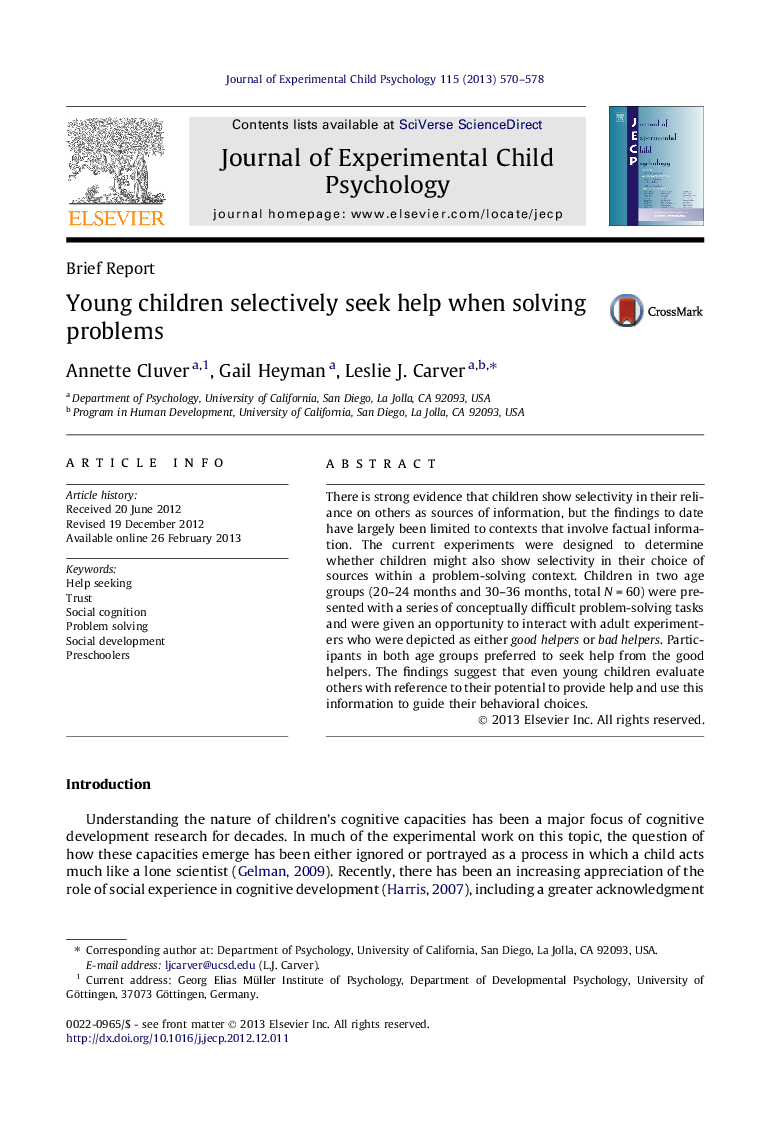| Article ID | Journal | Published Year | Pages | File Type |
|---|---|---|---|---|
| 918140 | Journal of Experimental Child Psychology | 2013 | 9 Pages |
There is strong evidence that children show selectivity in their reliance on others as sources of information, but the findings to date have largely been limited to contexts that involve factual information. The current experiments were designed to determine whether children might also show selectivity in their choice of sources within a problem-solving context. Children in two age groups (20–24 months and 30–36 months, total N = 60) were presented with a series of conceptually difficult problem-solving tasks and were given an opportunity to interact with adult experimenters who were depicted as either good helpers or bad helpers. Participants in both age groups preferred to seek help from the good helpers. The findings suggest that even young children evaluate others with reference to their potential to provide help and use this information to guide their behavioral choices.
► Two- and 3-year-olds sought help from “good” or “bad” helpers in a problem solving situation. ► Children in both age groups were more likely to seek help from good than from bad helpers. ► Three-year-olds, but not 2-year-olds, were more likely to seek help on new than old problems. ► Three-year-olds spontaneously offered help, and did so preferentially to the bad helper.
